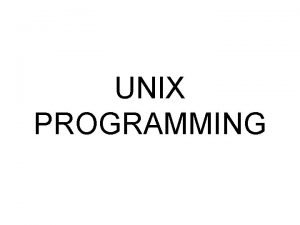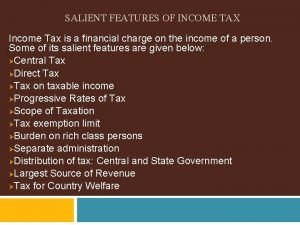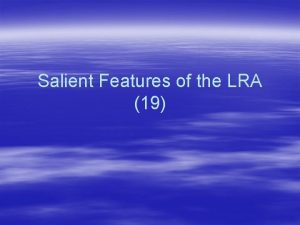Salient features of potential predatory journals List from



- Slides: 3

Salient features of potential predatory journals List from Shamseer, et al. , BMC Medicine 15: 28 (2017). • • • • The scope of interest includes non-biomedical subjects alongside biomedical topics The website contains spelling and grammar errors Images are distorted/fuzzy, intended to look like something they are not, or which are unauthorized The homepage language targets authors The Index Copernicus Value is promoted on the website Description of the manuscript handling process is lacking Manuscripts are requested to be submitted via email Rapid publication is promised There is no retraction policy Information on whether and how journal content will be digitally preserved is absent The Article processing/publication charge is very low (e. g. , < $150 USD) Journals claiming to be open access either retain copyright of published research or fail to mention copyright The contact email address is non-professional and non-journal affiliated (e. g. , @gmail. com or @yahoo. com)

Check list before submission • Do you or your colleagues know the journal? – Have you read any articles in the journal before? – Is it easy to discover the latest papers in the journal? • Can you easily identify and contact the publisher? – Is the publisher name clearly displayed on the journal website? – Can you contact the publisher by telephone, email, and post? • Is the journal clear about the type of peer review it uses? • Are articles indexed in services that you use? • Is it clear what fees will be charged? – Does the journal site explain what these fees are for and when they will be charged? • Do you recognize the editorial board? – Have you heard of the editorial board members? – Do the editorial board mention the journal on their own websites?

Validating Open Access Journals • Directory of Open Access Journals (DOAJ) https: //doaj. org • Journal Citation Reports (JCR) https: //jcr. clarivate. com it is recommended to use the journal's ISSN.





